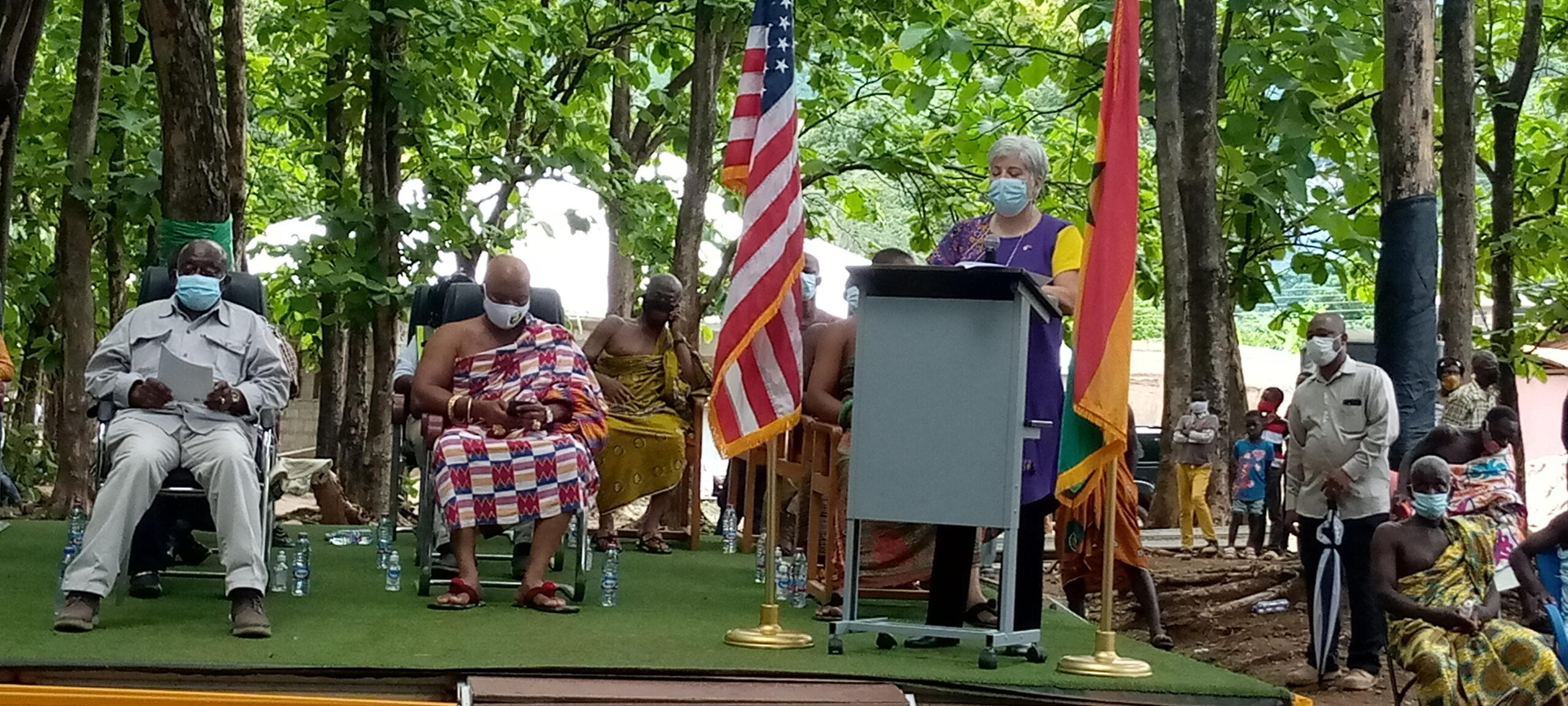 The United States Ambassador to Ghana, Stephanie S. Sullivan, on Thursday joined Asanteman to plant trees along the buffer of Lake Bosomtwe at Ankaase in the Bosomwe District to mark World Earth Day.
The United States Ambassador to Ghana, Stephanie S. Sullivan, on Thursday joined Asanteman to plant trees along the buffer of Lake Bosomtwe at Ankaase in the Bosomwe District to mark World Earth Day.
The day is observed every year on April 22 to create awareness about pollution and to celebrate the environmental blue planet.
“Restore Our Earth” which is the theme for this year’s celebration, focuses on natural processes and emerging green technologies that can restore the world’s ecosystems.
It is in line with this that the Regional Environment Office of the U.S. Embassy chose to plant 2,000 trees along Lake Bosomtwe to commemorate the day in support of the Asante Kingdom Land Restoration Project (AKLRP).
The AKLRP is an ambitious initiative that seeks to preserve water bodies and forests in the Asante Kingdom as a means of addressing emerging climate change challenges.
Otumfuo Osei Tutu II, the King of the Asante Kingdom as part of his commitment to complement global efforts to mitigate the effects of climate change across the world, launched the project in 2019 with the aim of restoring depleted buffers of water bodies.
The project is implemented by Oheneba Poku Foundation, which is working in partnership with state institutions such as the Water Resources Commission, Forestry Commission, Fisheries Commission, Environmental Protection Agency and District Assemblies.
The tree planting exercise brought together all the key stakeholders including; representatives from the Bosome Freho and Bosomtwe District assemblies, Manhyia Palace, Regional Coordinating Council, fringe communities of the Lake and school children.
Ms. Sullivan said the day was a call to action by all stakeholders to renew their commitments to a healthier and more resilient future for the people around the world and the planet.
She said climate change represented the biggest challenge to the future of humanity and Ghana for that matter, adding that it would affect vital water resources, energy supplies, crop production and food security if urgent measures were not taken to address them.
“Agriculture remains the backbone of Ghana’s economy, supplying over 70 per cent of national food requirements. And since Ghanaian agriculture is predominantly rain-fed, it remains vulnerable to climate change”.
The U.S. Ambassador said Lake Bosomtwe was an excellent example of why addressing climate change was a priority for the Biden Administration and the world and applauded Ghana’s efforts to mainstream climate change policies in its national development strategies and its commitment to developing ambitious nationally determined contributions under the Paris Agreement.
She commended Asantehene, Otumfuo Osei Tutu II, for showing leadership by launching the AKLRP to mobilize the people to protect water bodies and pledge her commitment to support the project.
Nana Adu Mensah Asare, the Amankomhene who represented the Asantehene, highlighted the progress that the project had made in protecting and enhancing the quality of the environment at the Bosomtwe Biosphere Reserve.
“We can be proud of the actions we have taken as a nation to protect the environment for ourselves and our children, but there was a lot to be done and I invite you all to join us to take the decisive actions to restore our planet.”, he implored.
He said soil degradation through soil erosion had been the main form of land degradation in the Bosomtwe Biosphere Reserve and many parts of the country, resulting in nutrient loss and thereby, and reducing agricultural productivity.

